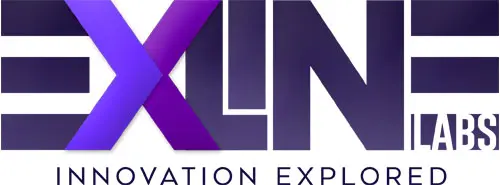Introduction
In the ever-evolving realm of digital marketing, the intersection of social media and search engine optimization (SEO) has become a strategic imperative. Effectively utilizing social media platforms to complement your SEO efforts can significantly enhance your online presence, drive organic traffic, and contribute to the overall success of your digital strategy. This guide aims to delve deep into the best practices for leveraging social media for SEO, providing a step-by-step walkthrough along with essential code snippets for implementation.
Step 1: Optimize Your Social Profiles
Why is Profile Optimization Important?
Before embarking on content sharing, it’s crucial to lay a solid foundation by optimizing your social media profiles for search engines. This not only makes your profiles more discoverable but also establishes a clear link between your social media presence and your website.
Implementation: HTML Meta Tags for Twitter
|
1 2 3 4 5 |
<meta name="twitter:card" content="summary"> <meta name="twitter:site" content="@YourTwitterHandle"> <meta name="twitter:title" content="Your Twitter Profile Title"> <meta name="twitter:description" content="Optimized description with keywords"> <meta name="twitter:image" content="URL to your profile image"> |
In the above code, we’re utilizing Twitter meta tags to optimize your Twitter profile for search engines. Customize the values according to your profile information.
Step 2: Craft SEO-friendly Social Media Content
The Art of Creating Engaging Content
Creating content that resonates with your audience is at the heart of social media success. Beyond that, incorporating SEO elements into your social media posts can amplify their impact. This involves using relevant keywords naturally within your posts and encouraging engagement through compelling captions and visuals.
Implementation: Open Graph Tags for Facebook and LinkedIn
|
1 2 3 4 5 |
<meta property="og:title" content="Your Content Title"> <meta property="og:description" content="SEO-optimized content description"> <meta property="og:image" content="URL to your content image"> <meta property="og:url" content="URL to your content on your website"> <meta property="og:type" content="article"> |
By incorporating Open Graph tags, you’re optimizing your content for platforms like Facebook and LinkedIn. These tags provide structured information about your content when shared on these platforms.
Step 3: Implement Social Sharing Buttons on Your Website
Facilitating Content Sharing
Make it easy for your audience to share your content on various social media platforms by integrating social sharing buttons on your website. This not only extends the reach of your content but also contributes positively to SEO.
Implementation: Social Sharing Buttons HTML
|
1 2 3 4 5 6 |
<!-- Social sharing buttons HTML --> <div class="social-share"> <a href="https://www.facebook.com/sharer/sharer.php?u=YourContentURL" target="_blank">Share on Facebook</a> <a href="https://twitter.com/intent/tweet?url=YourContentURL&text=YourContentTitle" target="_blank">Share on Twitter</a> <a href="https://www.linkedin.com/shareArticle?url=YourContentURL&title=YourContentTitle" target="_blank">Share on LinkedIn</a> </div> |
By adding these buttons, you’re simplifying the process for your audience to share your content, leading to increased visibility and potential backlinks.
Step 4: Utilize Hashtags Strategically
The Power of Hashtags on LinkedIn
When sharing your content on LinkedIn, strategically using hashtags can significantly enhance its discoverability. Hashtags categorize your content and make it more accessible to users interested in specific topics.
LinkedIn Post Example with Hashtags
|
1 2 |
Excited to share our latest guide on leveraging social media for SEO! ? Learn the best practices to boost your online presence. #SEO #SocialMediaMarketing #DigitalMarketing Read the guide here: [Your Content URL] |
In this example, we’ve incorporated relevant hashtags that align with the content of the post. This practice increases the likelihood of your content being discovered by users interested in those topics.
Step 5: Engage with Your Audience
The Importance of Engagement
Beyond the technical aspects, fostering engagement on social media is crucial. Responding to comments, encouraging discussions, and building a community around your content not only strengthens your social media presence but also contributes positively to SEO.
By engaging with your audience, you’re signaling to search engines that your content is valuable and relevant, potentially leading to improved search rankings.
Conclusion
In conclusion, the fusion of social media into your SEO strategy is a dynamic interplay of technical optimization and creative resonance. From crafting SEO-friendly content to facilitating seamless sharing, strategic hashtag use, and genuine engagement, these practices collectively create a powerful synergy. This integration goes beyond metrics, sculpting a digital narrative where your brand becomes a compelling protagonist, leaving an impactful imprint on the online landscape. Ultimately, this harmonious relationship not only boosts visibility but also propels organic traffic, embodying the essence of a thriving and interconnected digital presence.
Explore our services here and get in touch with us here. Let’s elevate your online presence together!

